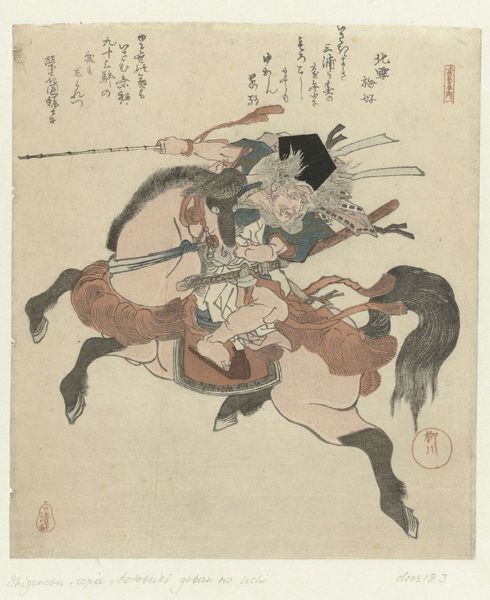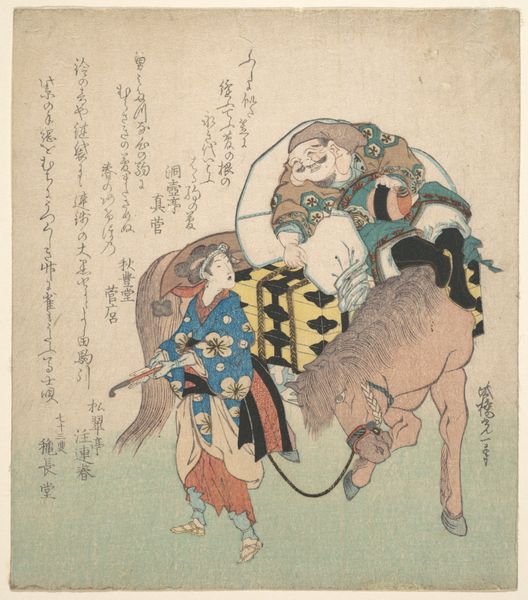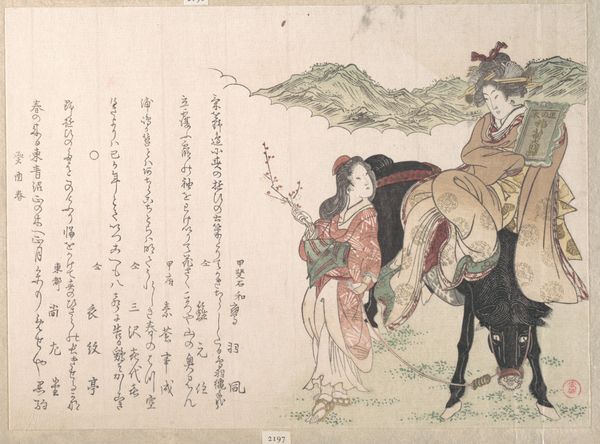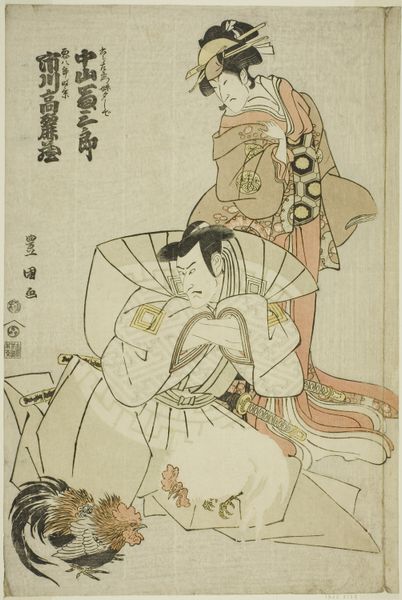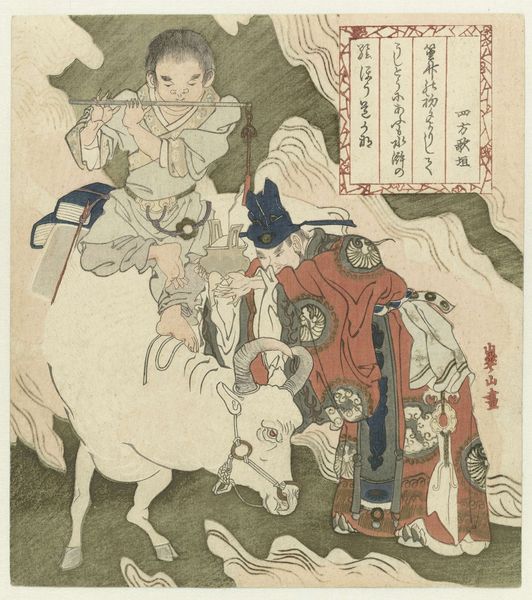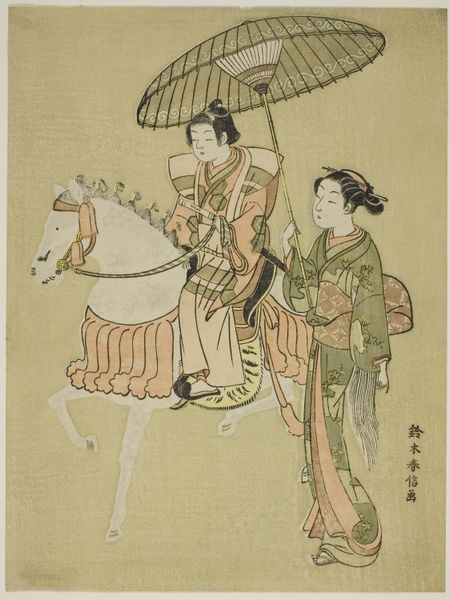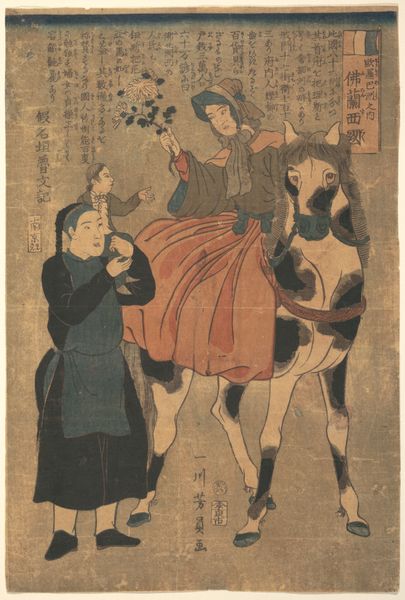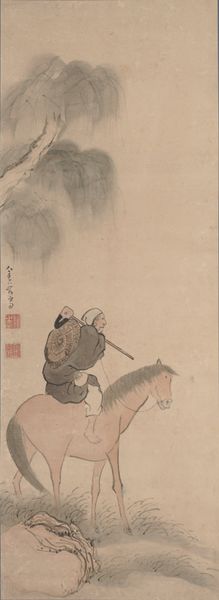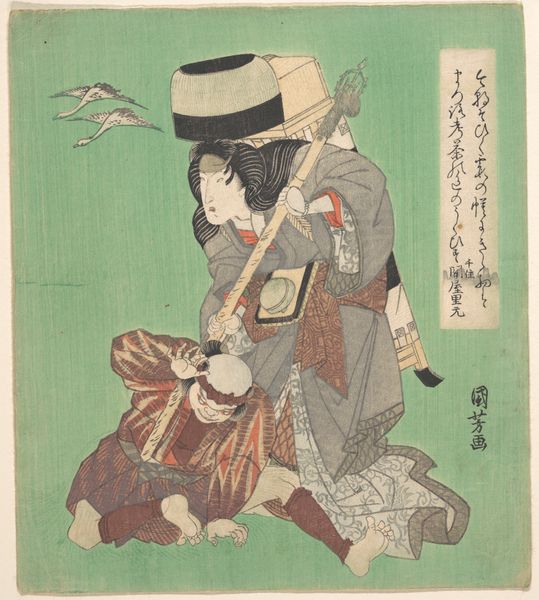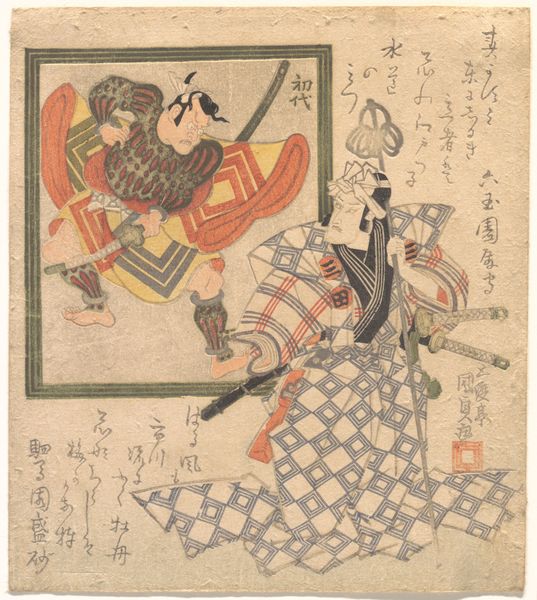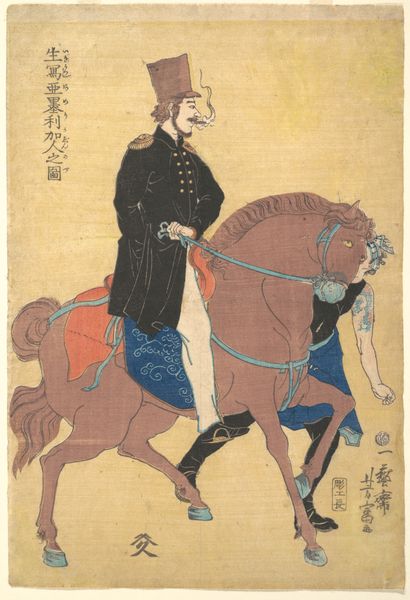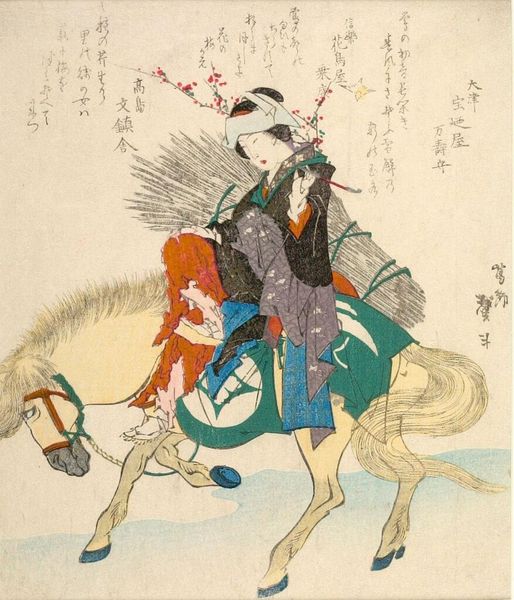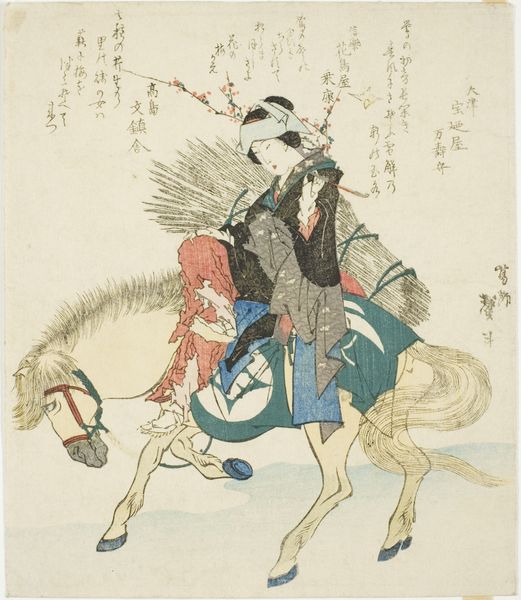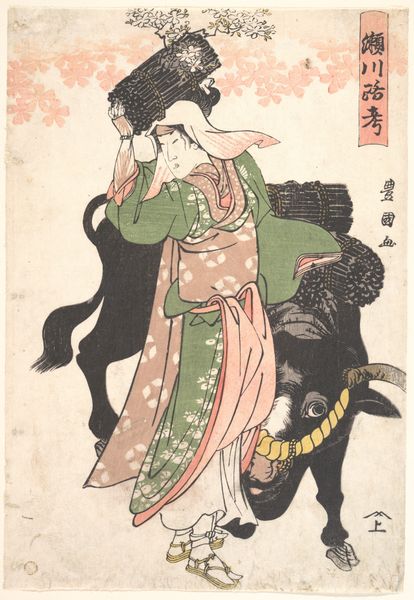
print, oil-paint, impasto, woodblock-print
#
portrait
#
narrative-art
# print
#
oil-paint
#
asian-art
#
landscape
#
ukiyo-e
#
figuration
#
impasto
#
woodblock-print
Copyright: Public domain
Editor: So, this is "Chinese Sage Reading While Riding on a Buffalo," a woodblock print by Toyota Hokkei, from about 1820. It strikes me as such a whimsical image. I mean, look at this old man calmly reading atop a buffalo! What's your interpretation? Curator: This print really invites us to consider the relationship between knowledge, power, and the natural world, especially through the lens of East Asian philosophy. Think about the sage: often revered as a symbol of wisdom. And what is he reading? How might the context of that text impact our understanding of this image and how can it serve as an intervention in how one traditionally perceives enlightenment? Editor: That's interesting, I hadn't considered that. What kind of power dynamic are we seeing? Curator: Exactly. Consider the buffalo. It represents strength and grounding and nature. Now contemplate this intersection: we have the intellectual and the natural. What's the visual narrative being woven about the interaction of intellect and nature and society? Consider the artist’s choice to represent this sage and what messages it projects for social order and justice during a historical transition. What do the sage’s attire and expression signify? How might gender, class, or race inform our reading of this image? Editor: I didn't think about the symbolic relevance and its link to the construction of an informed society... So much to learn. Curator: Absolutely. It is about examining those historical power dynamics embedded within artistic representation. When the viewer looks, can that analysis incite transformative awareness?
Comments
No comments
Be the first to comment and join the conversation on the ultimate creative platform.
